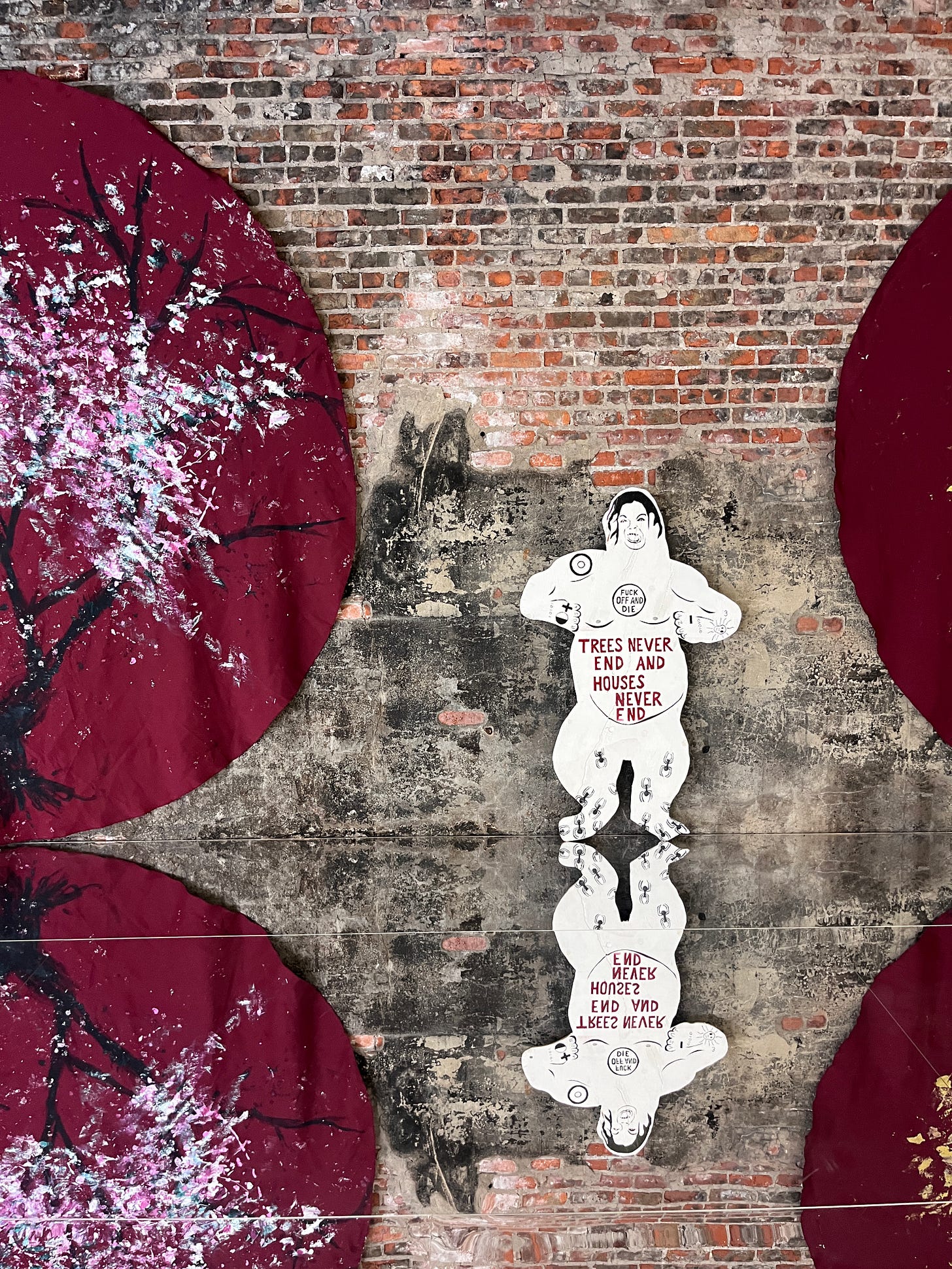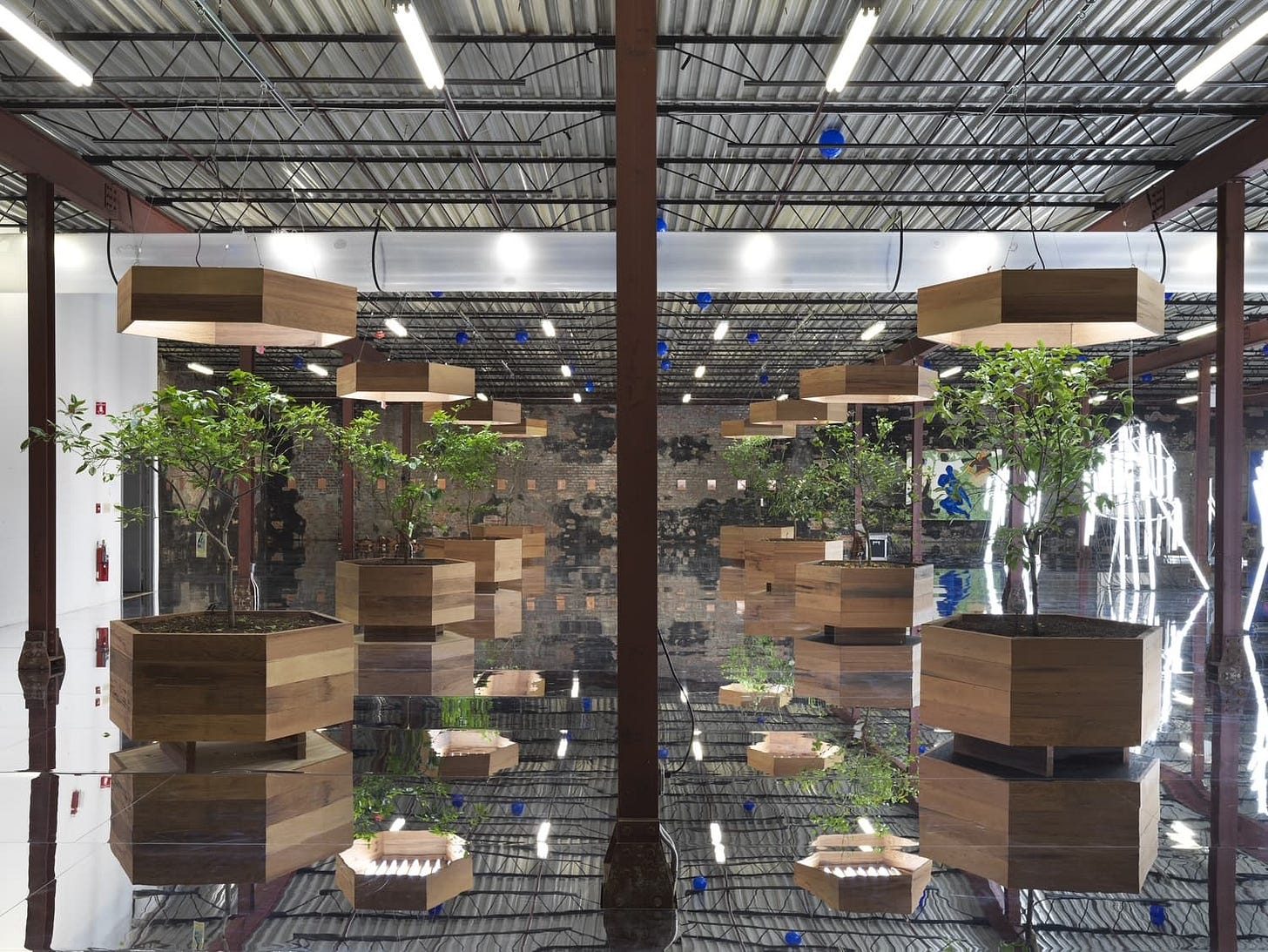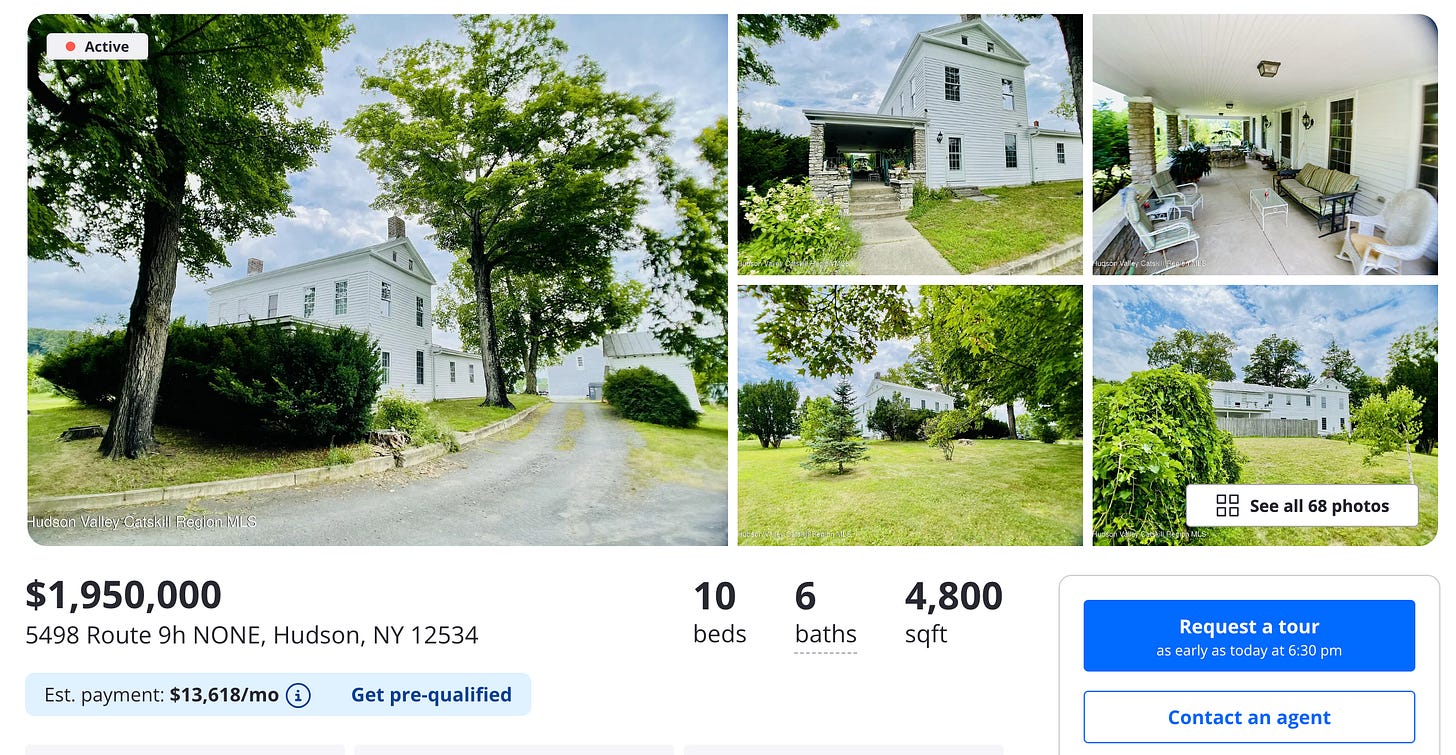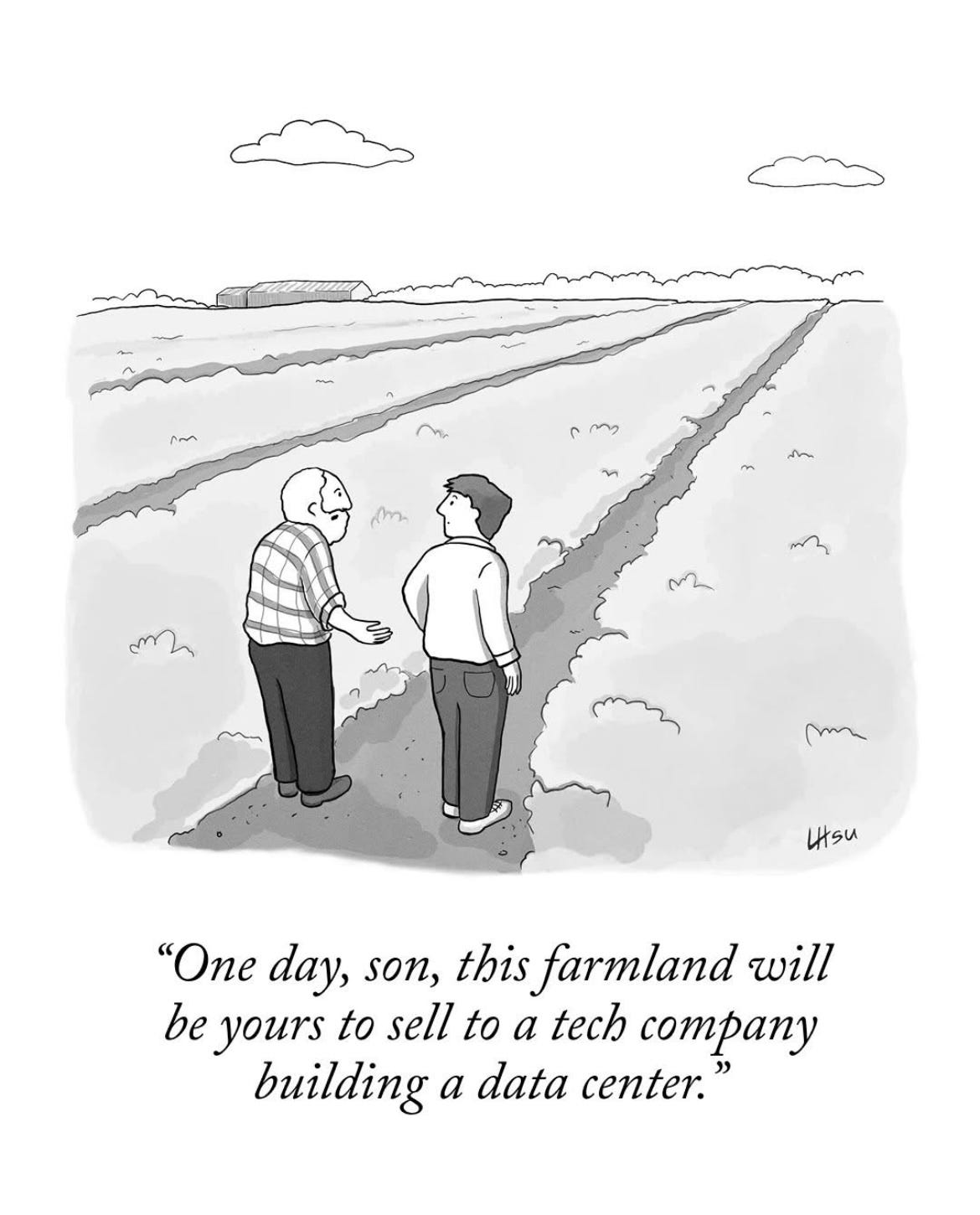Hello Hello All,
A couple months back, I shared some reflections on my beginnings, initiations, and frustrations in regenerative real estate. That letter was called The Big Apples, inspired by a local orchard, and negative patterns I’ve seen take hold on the place.
Since then, I’ve been putting out a quiet call for partnership—or just listening for what others are sensing in this space. I spoke with folks at long-standing ag land trusts and learned that nearly 90% of farmland in the U.S. is held by farmers with no heirs.. I heard firsthand from heirs about why they walked away from family land. I also heard from landowners who recently purchased portioned off retired orchards and are now wondering why they can’t find anyone to operate the acreage/trees they just bought.
I awkwardly tried to spark cross-state collaborations toward something more regional in scope-but was left with, what? Maybe just a reckoning. The reality that small-scale orchards are struggling. And that’s mostly the story right now.
I learned that sometimes, even prominent CEOs will buy a farm and knowingly operate it at a loss. Love Apple Farm in Columbia County is one such place. Once purchased by a real estate developer committed to the region, it still couldn’t escape the financial strain. After years of trying to make it work, the farm recently closed for good after failing to sell.
Love Apple was originally founded in 1969 by Chris and Rande Loken. In 2012, Francis Greenburger and Isabelle Autones took over. As Greenburger told News10:
“The farm is closing because it has not been profitable for over ten years. Current costs for operating a small family apple farm and farm stand exceed revenue.”
For context—Greenburger is also the mind and money behind Art Omi in Ghent, a sculpture park that offers free, open access to art and land. Think Storm King, but more intimate. Art Omi is now expanding again, with a new site in Chatham featuring artist-designed pavilions….
A surprising part of this summer was the launch of Sky High Farm’s latest project. The nonprofit—founded by an artist i learned—transformed a former apple cold storage facility in Germantown into a surreal gallery space, complete with mirrored floors and live trees growing indoors. The installation is aptly named “Trees Never End and Houses Never End.”
It was a strange/awesome repurposing of farm infrastructure—once meant to preserve fruit, now inviting reflection.
So why orchards? Why am I still talking about them?
Because they spoke to me first. There’s something about their perennial nature that mirrors the longform development of place. Buildings. Homes. Communities. These things ask for patience. For cycles. And yet, too often, housing and agriculture feel like oil and water.
I’m still sitting with the hope that they can not only coexist—but actually strengthen one another. That’s the heart of efforts like the Hudson Valley Alliance for Housing & Conservation: the belief that human development doesn’t need to come at the expense of land.
Lately, I’ve been lucky to work on a few projects sitting right in that in-between space. They’re testing out new models for housing and land access—with ties to equity strategies like housing co-ops, integrated business ventures, shared coliving spaces….
And yes, they’re agricultural-forward. The region seems to be calling for it. I’m grateful to my clients who are not only open and malleable, but also actively responding to this call to reconnect housing and land.
This kind of work—investing in housing and land at once—feels deeply aligned. It brings soil health, economic resilience, and quality of life into one conversation.
I’ve been holding both ends of the spectrum: visioning and coaching on one side, and the nuts-and-bolts of zoning, engineering, and due diligence on the other. It’s been an education. Grounding. And, in its own way hopeful.
the conversation around farmer housing, housing farmers, houses on farms, farms with houses continues :)
To close, I’m resharing a new listing and farm which i was lucky to tour and promised to pass on once it hit the market.
Earlier this spring, I had the chance to walk a significant orchard that holds a lot of the same beauty and tension I’ve been talking about. The owner’s done a great job fixing up the old farmhouse. There’s a creek on site, sunset views, and rows of trees still producing fruit.
The little storefront along Route 9H has been closed since the start of the pandemic, but it’s not hard to imagine it opening up again—serving the area in some simple, meaningful way.
I’m sharing it here as one of the ways I know how to support—putting a place like this back into circulation, giving it a shot at a new chapter. Maybe someone out there feels the pull. Maybe it’ll surprise us.
https://www.zillow.com/homedetails/5498-Route-9h-Hudson-NY-12534/452761067_zpid/
I’ll end a bit awkwardly with a meme that came across my algorithm
as always feel free to reach out, i;ve really been enjoying helping those move forward earnestly, productively, and i guess i’ll keep calling it regeneratively with their real estate projects. if you have and idea in mind, land, or would like to figure out ways we can help each other. reach out :) DanielHasonRE@gmail.com





